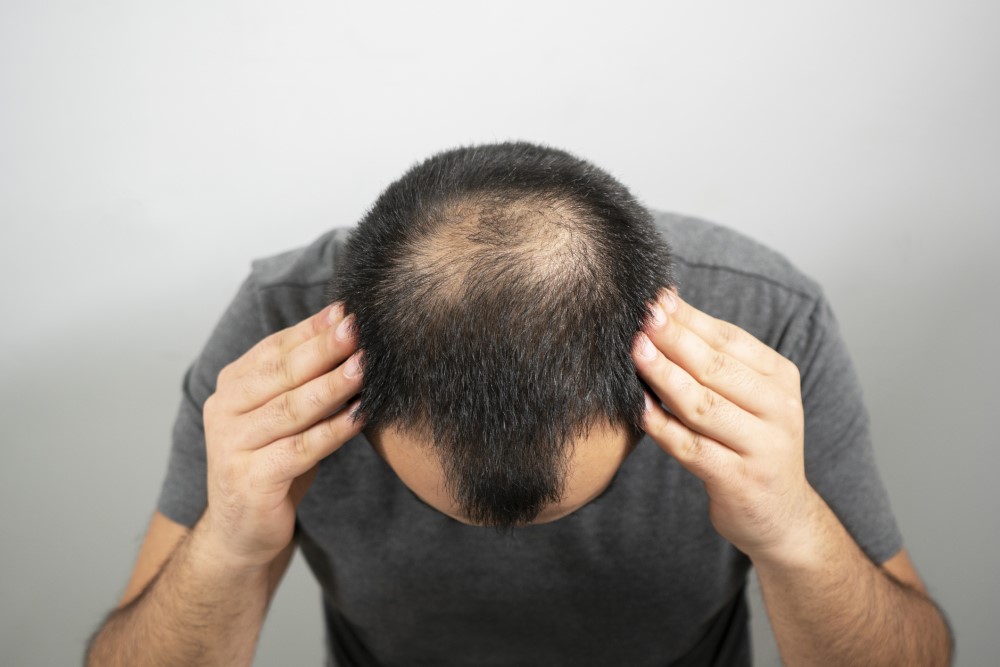By Paul Hodkinson and Matt Hall

Head-hair is often regarded by men as key to their body image and identity, with a full head of hair often associated with ideals of masculine success. As a consequence, the experience of going bald can be a turbulent and sometimes even distressing life transition for men, with implications for wellbeing, identity and everyday life. Yet knowledge of how men respond, adapt and cope with the process of such a significant change to their appearance is surprisingly scarce.
Journeys of Hair Loss is a new BA/Leverhulme project that focuses on male androgenic alopecia, or pattern baldness. We’re hoping to examine the journeys that men go through as they lose hair, including the challenges they face, and their developing approaches to accepting, resisting or adapting.
Struggles and responses – what (little) we know
Medically known as androgenetic alopecia, pattern baldness can affect men at any time after puberty. While 16% of 18-29 year olds are affected, the prevalence of pattern baldness increases significantly with age, affecting two thirds of men by the age of 60. Often a subject for humour and negative comments, going bald is associated with social judgement, with bald men tending to be marginalised or maligned in popular media. Research indicates, for example, that only 10% of prime-time male television characters are bald or balding, many of whom depicted as foolish, humorous, criminal or angry. It may not be surprising, then, that pattern baldness can lead to negative feelings about body image and feelings of anxiety, frustration and helplessness.
While detailed research on men’s responses to hair loss is minimal, millions have turned to commercial hair loss treatments, which now form an $8 billion global market. Featuring myriad celebrity endorsements and high-profile advertising, as well as algorithmically-targeted social media campaigns, treatments range from topical foams, creams and oils to drugs that block hormone changes and even transplant surgery. Some of these hair loss interventions have their own well-being costs. The drug Finasteride, for example, has been associated with sexual and mental health challenges.
The industry’s meteoric growth can be connected to the broader expansion of expectations on men to groom and enhance their bodies through consumables. However, it may also reflect the medicalisation of pattern baldness – its increasing designation as a clinical deficiency or pathology.
Our Project: Journeys of Hair Loss
Whilst existing studies offer some pointers as to the kinds of questions we might ask, in depth understanding of how men respond and adapt to the experience of pattern baldness is hard to come by.
Our project will address this gap through in depth interviews with men under the age of 50 who have experienced hereditary hair-loss. We hope to provide an in depth understanding of their experiences, including the significance of hair loss for their identity, everyday life and wellbeing, and the development of approaches to accepting, adapting, resisting or coping with the process.
We’re taking a biographical life-course approach that highlights how experiences may change over time. This includes how hair loss might affect other facets of life, such as careers, relationships, family or social lives, as men move through or between phases of adulthood. We hope to explore similarities and differences between men of different ages, and those taking different life course pathways. One point of interest here relates to potential differences in some cases between straight and queer life course pathways and their implications for the ways in which baldness might be experienced and understood.
Some of our questions centre on the possible role of hair-loss as a key transition in the life course. We’re thinking here of Giddens’ emphasis on ‘fateful moments’ and Brooks and Hodkinson’s more recent focus on ‘crossroads moments’ in the journey’s of caregiving fathers. A further concept of use may be Bury’s notion of biographical disruption, originally intended to highlight the dramatic changes to identity and everyday life of those suffering chronic illness, but recently adapted by Hodkinson and Das to the process of having a baby. Or perhaps the process of going bald is a longer, more complex transition, characterised by periods of relative stability and moments of challenge, disruption or change.
Our focus in exploring such questions will be on men’s developing approaches to navigating and negotiating the process of hair-loss over time, asking not only how their lives may be affected how they make sense and respond.
Our research also ties in with developing understandings of contemporary masculinities. We explore how men who are coming to terms with baldness may negotiate with established and/or more progressive models of being male. Particular versions of ideal masculinity sit at the heart of prevailing body and appearance ideals that can render the experience of hair-loss so challenging. Different sorts of masculine expectations – for example, those relating to stoicism and invulnerability – are also liable to impact how far men feel able to seek help for wellbeing struggles.
Sometimes, such negotiations may involve ongoing and complex trade-offs. For example, does one compromise masculine libido or risk sexual dysfunction in order to maintain an acceptable masculine appearance through hormone-related medication? Our hope is to understand how differently positioned men come to navigate these and other complexities.
For more detail about the study, please visit our web site. If you would like to contact us, or volunteer to participate, please email: hairloss@surrey.ac.uk
This study has received a favourable opinion from the University of Surrey Ethics Committee.
Please note that articles published on this blog reflect the views of the author/s and do not necessarily reflect those of the Department of Sociology.
